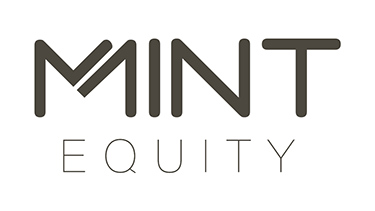Zac Peteh, Director and Finance Broker at Mint Equity was recently featured in an Australian Broker Magazine article about the growth of the mortgage broker market and why homeowners are choosing mortgage brokers over dealing directly with the banks and second tier lenders. He shared his thoughts with Australian Broker on the challenges faced by homeowners and why nearly 70% of all residential home loans are written by mortgage brokers.
Zac Peteh, Director and Finance Broker, Mint Equity
What are some of the main challenges faced by homeowners when trying to secure a mortgage directly through channels other than brokers?
The primary difficulty for homeowners when directly dealing with a lender is the lack of ease in comparing the lender's product with other options available in the market. This is where mortgage brokers play a crucial role, as they can provide access to a broader panel of lenders, enabling them to offer better solutions to clients.
“Consumers desire the freedom to choose and seek assurance that their lender and product selection is suitable, which can solely be achieved by obtaining access to a broader array of choices, which only the mortgage broker market can provide.”
Another factor to consider is the disparity in the credit assessment process between mortgage brokers and the retail market. As brokers, we frequently encounter situations where we must challenge credit decisions because the lender's credit assessor has inaccurately interpreted credit policy. Mortgage brokers advocate for their clients and help prevent inappropriate decisions by credit assessors who may lack experience. If a consumer approaches the lender directly, there is no one to cross-check policies and decisions, which could potentially lead to a decline and negatively impact their credit report if not rectified.
Why do you think nearly 70% of all residential home loans are written by mortgage brokers according to MFAA data? Were you surprised by the data?
The data doesn't surprise me, as homeowners are actively seeking knowledge, consistent communication, and ongoing support, which are aspects that the transactional retail lending space fails to deliver. Over the years, the role of mortgage brokers has undergone significant transformation, with many evolving into trusted confidants for homeowners and becoming the primary resource for finding solutions. The majority of retail lenders lack the stability, organizational structure, and experience necessary to establish enduring relationships with homeowners.
Another crucial aspect is the wide array of products and lending options that mortgage brokers can offer. Consumers desire the freedom to choose and seek assurance that their lender and product selection is suitable, which can solely be achieved by obtaining access to a broader array of choices, which only the mortgage broker market can provide.
“Mortgage brokers advocate for their clients and help prevent inappropriate decisions by credit assessors who may lack experience.”
Last year, you described going through direct lenders as a "user experience nightmare" during the COVID-19 pandemic. Do you think it has gotten better or worse?
I acknowledge that the direct lender consumer experience has seen improvements in terms of reduced call centre wait times and faster approval processes since the Covid lockdowns, however, the overall experience of dealing directly with a lender remains a deterrent for consumers. Consequently, they often turn to mortgage brokers. Whether justified or not, the work-from-home trend has resulted in a fragmented service offering for consumers.
At Mint Equity, our team made a deliberate choice to work from the office consistently over the past three years. This decision has allowed us to foster knowledge-sharing, provide a rich training environment for new team members, facilitate seamless collaboration, and promptly develop solutions for our clients.
Mortgage brokers might have missed an opportunity to gain a more substantial advantage over the direct lender channel by enhancing the consumer experience, which, unfortunately, could not be effectively accomplished under a work-from-home model. Despite brokers being in a favourable position to capture more business from the direct lender channel, the increase in mortgage broker market share in the March quarter was only 0.1%, which is somewhat underwhelming.
“The majority of retail lenders lack the stability, organizational structure, and experience necessary to establish enduring relationships with homeowners.”
How has BID effected the mortgage broking industry? Has it influenced the uptake in consumers using brokers?
Having "Best Interests" in the title undoubtedly suggests a positive impact on the industry. However, it is concerning that banks and non-bank lenders are excluded from operating within the same framework, and this issue should be addressed. Many consumers are likely unaware that mortgage brokers' processes are linked to the Best Interests Duty (BID), as the obligation ultimately falls on them, albeit with additional paperwork.
As mortgage brokers, we still observe disparities between the lending process in the broker channel versus the direct channel. For instance, some lenders allow their branch staff to interpret credit policies differently, and interest rate discounts can vary between the broker channel and the retail branches. Achieving consistency across all channels in terms of products and pricing is crucial to ensure that all consumers have a fair opportunity to secure appropriate lending solutions and interest rates.



